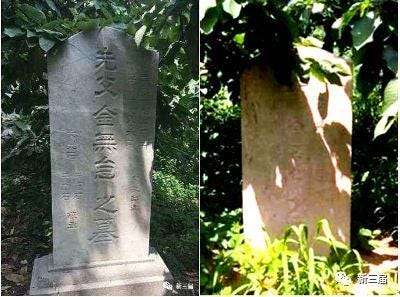Getting reliable information about Chinese intentions has always been challenging for US intelligence agencies. One early recruit was Larry Wu-tai Chin 金无怠. Born in Beijing in 1922, he went to Yenching University, and was hired as a translator at the US consulate in Shanghai, working from 1945 - 49.
Unknown to the Americans, he had been recruited by the Liaison Department of the Chinese Communist Party, which later became the Central Investigation Department and was headed by Li Kenong, who was the first security head for the People's Republic after its founding.
In 1949, he was evacuated from Shanghai when the US consulate shut down, and after the Korean War broke out, he was employed as a translator interviewing Chinese prisoners of war who had been captured by the Americans. Some of these POWs were pro-Communist, while others were anti-Communist, and wanted to go to Taiwan where Chiang Kai-shek's Nationalists had retreated to. Larry Wu-tai Chin turned over the names of the anti-Communist POWs to the PRC authorities, who insisted on their being repatriated back to the PRC. This led to a stalemate in the armistice talks between the US and joint China-North Korean teams which lasted for more than one year.
Following the Korean War, he was assigned to the CIA where he worked as a translator and analyst. During this period in the 1950s and 1960s, China was still ruled by Mao Zedong, who launched the Cultural Revolution in 1966.
China's relations with the Soviet Union were very tense shortly after Nixon became president in 1968, even fighting a short border war, and the Soviet leadership was interested in working with the US to attack China. Nixon and Kissinger saw that the chances for the Nationalists overthrowing the Communists were almost nil, and that the timing was right for making a breakthrough in relations with the People's Republic.
Chin learned about these intentions from his work at the CIA, and provided documents about the US intentions to his Chinese security service handlers, who provided them to the Chinese leadership. This helped the Chinese to formulate their negotiating position when meeting first with Kissinger, then Nixon.
Chin retired from the CIA in 1980. His status as a Chinese mole was not discovered until 1985 when a member of the Chinese Ministry of State Security, Yu Qiangsheng, defected to the US. He was arrested in 1985, and committed suicide in prison while awaiting trial in 1986. He is buried in Palo Alto, California.
While he may have been motivated by his support for the Chinese Communist Party, he was generously paid for his services; it is estimated that he made more than one million dollars for his work. He laundered his earnings from CIA internal audits by having a reputation as a gambler and a slum landlord.
In the 1950s and 1960s when Larry Wu-tai Chin was working on the China desk, the CIA and Nationalists on Taiwan made numerous attempts to penetrate into China and set up networks, but these attempts almost all ended in failure when the agents were captured or executed.
While Chin is buried in California, his three children have erected a memorial "tombstone" in Beijing near the grave of Chin's father, which is seen in the photo above. This is likely because in Chinese tradition, parents should be buried near their original homes.
When China and the US had friendly relations, China's state-owned media would play down the periods when the two countries were antagonistic to each other, such as the Korean War. This year, 2021, marks the 100th anniversary of the Chinese Communist Party, and General Secretary Xi Jinping has encouraged media to produce movies, articles and television series glorifying the accomplishments of the Chinese Communist Party. Xi has also insisted that China stand up, and not be afraid of confronting the west, especially the US.
Seen in this light, it would not be surprising to see the story of Larry Wu-tai Chin told very much from a Chinese perspective, either as a movie or television series. If that happens, Larry Wu-tai Chin will not be portrayed as a Chinese mole, but a patriotic Chinese who had revealed the true intentions of leading China's adversary, the US, to China's leadership.



